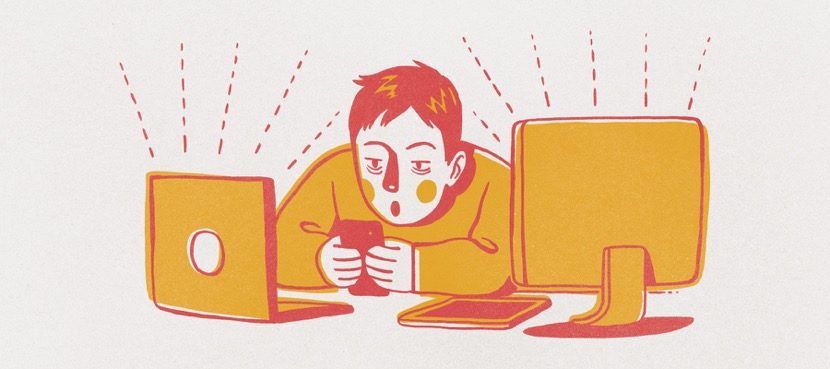
Procrastination is something that all of us have experienced at some point or another in our lives. When it happens, people put off tasks to do and postpone important tasks for a later time.
For a behavior to be understood as procrastination, it must be understood as something that is counterproductive, unnecessary and that delaying or delaying that time is harmful in some way. It is about voluntarily delaying a planned action despite the fact that this delay and not doing the action have worse consequences than doing it.
Consequences of procrastination
People who procrastinate will feel that they are wasting their time and that they are not able to do things properly. This can generate stress, feelings of guilt and even feel a certain personal crisis. As if that were not enough, you also feel a severe loss of personal productivity, social disapproval and even work problems for not meeting responsibilities or commitments. Procrastination can cause the person to go into a loop and therefore the delay of time becomes normal.

It is considered normal for people to procrastinate up to a certain point, but when procrastinating more than necessary, no matter how many justifications you try to give, the consequences generate a lot of anxiety and stress. On rare occasions, these negative feelings can lead to feelings of motivation to finish the task at hand. although the justification for the delay reinforces the same type of behavior in the future.

The person who procrastinates must understand the value of priorities in order to be productive in their lives. People who procrastinate appear to be lazy and irresponsible people, people who have no ambitions in life.
Why are there people who procrastinate
Procrastination is usually a problem of emotional connection, that is, people who procrastinate tend to have anxiety problems, a low sense of self-worth and a self-destructive mentality that they find it difficult to control. Also, there may be a lack of self-confidence or that the person in question simply does not like the task and he is having a passive aggressive behavior (as he does not like the task, he says that he is going to do it but does not do it as a way of showing his dissatisfaction with said task).
It can be understood as a gap between intention and action. People who procrastinate do so because of a breakdown in self-control. You know what to do but you can't do it.
Types of procrastinators
There is not only one type of procrastinator, in fact there are two types: chronic procrastinators and situational procrastinators. The former have perpetual trouble finishing tasks and the latter do so depending on the task at hand.
A person who has a high level of impulsive behavior and lacks self-control and discipline takes longer than those who have a higher level of development in these specific traits. Somehow it involves the control of the ego and the denial of responsibility, justifying and making excuses to delay what should be done. You need to understand that these excuses have a purpose: continue procrastination by minimizing the perceived effects of actions that make us feel good.

How to treat procrastination
According to a study from Stockholm University, it seems that procrastination is not only a time management problem, but there may also be emotional reasons to trigger this problem. There are those who think, for example, that they work better under stress, but this fuels their stress and discomfort.
Negative emotions often arise from negative thoughts that derail the ability to cope. Something you have to do, you put responsibility aside and do other things that you think make you feel better like lying on the couch or watching television ... assuming that afterwards you will feel better to face the difficult, But this does not usually happen, as you may feel worse for having postponed the task.
Sometimes time management and treatment are of little use to chronic procrastinators because they don't know how to change their thinking. The secret is to change the way of thinking and therefore the state of mind so that the things that need to be done are not postponed. Next we will explain how to treat this problem in an easy way.

Why is it done
You must first understand why you are holding back from doing what you have to do. What feelings arise when you try to write the proposal or have a difficult conversation? What are you afraid might happen if you actually do it? What is the worst case? For many, if not most, anxiety is to blame. Anxiety about messing up work or not doing it leads us to put it off until, ironically, we can't get it right or it's left forever.
Seek reward rather than avoidance
If your mood plummets at the prospect of taking action, you need to improve your mood first. When you want to do something, whatever, give yourself a little reward later.
Beware the tip of the iceberg
You have a ton of ideas about how the world that gradually formed in your head works and should work, starting when you were very young, but you hardly notice them as they are sunk below the surface of your body - in consciousness. . We call them iceberg beliefs, and they can be a problem, because you probably don't know how they are affecting your thinking.

An example of an iceberg belief at stake with procrastination is, "I should make everything perfect" (sound familiar?). This need to have things a certain way before taking any action will hinder your progress and keep you stuck. How do you know you are dealing with an iceberg? The signs include words like "I should" or "I must" in your mind.
Change the way you think
How you perceive a situation will determine how you respond to it and ultimately what you do. What happens to many of us is that we get caught up in thought traps, or ways of thinking that leave us no way out or progress.
If you think, "This project is too difficult, I'll never make it," it can be a magnifying glass and a minimizer, making the most challenging aspects of a job worse and minimizing the benefits, which kill your motivation. On the other hand, if you think or say: "This is a challenge, but it is doable, and the rewards of even getting started are worth it" ... things change a lot in your mind.
If you think, "I could never do this on my own," or, "I'm just never good at this kind of thing," it's likely an excessive customizer or generalizer, pointing to low self-esteem. Because you don't believe that you are capable of doing it, and you tell yourself that, well, you do, and your fear becomes your reality. On the other hand, if you think or say: “What I am trying to do would not be easy for anyone. Who better than me to face it? Who else but me is willing to face it?